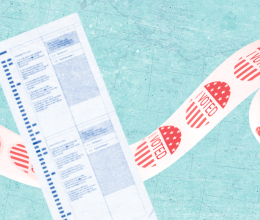COLUMBUS, OHIO — Today, the ACLU Of Ohio sent a letter to Secretary LaRose raising questions and requesting clarity about certain provisions in HB 458 that will adversely affect voters with disabilities. While the Secretary’s recent guidance to local Boards of Elections address certain issues regarding the implementation of HB 458, it does not address concerns related to curbside voting and the photo ID requirement. The ACLU of Ohio notes that until answers are provided or modifications are made, the new law conflicts with Title II of the Americans with Disabilities Act.
The policy areas of most concern:
- Curbside voting
The ACLU letter calls out phrases “elector with a disability” and “physically unable to enter the polling place” as being exceptionally vague and lacking clear definitions. Curbside voting should be available to anyone who faces significant difficulties or danger voting within the polling place because of a disability on the day in question. Additional clarity is needed around physical signage and who will determine voter eligibility for curbside voting.
- Affidavit alternatives regarding the new photo ID requirement for in-person voting
The process of obtaining photo identification can be prohibitively burdensome for voters with disabilities, who will often have difficulties in traveling to identification-issuing offices. The law should permit voters with disabilities who lack the proper photo ID to provide an affidavit attesting to their identity, a modification already extended to voters who have religious objections.
“HB 458 creates extreme barriers for Ohioans with disabilities. These cumbersome hurdles present legal, ethical, and moral concerns about election integrity and accessibility in our state,” offered Collin Marozzi, Deputy Policy Director for the ACLU of Ohio. “It was irresponsible of the Ohio General Assembly to push through such vast and unnecessary changes to our voting laws without serious consideration and accommodation for voters with a disability. We look forward to Secretary LaRose’s response on how the state will clarify the rules and offer swift modifications to avoid discrimination on the basis of disability.”





